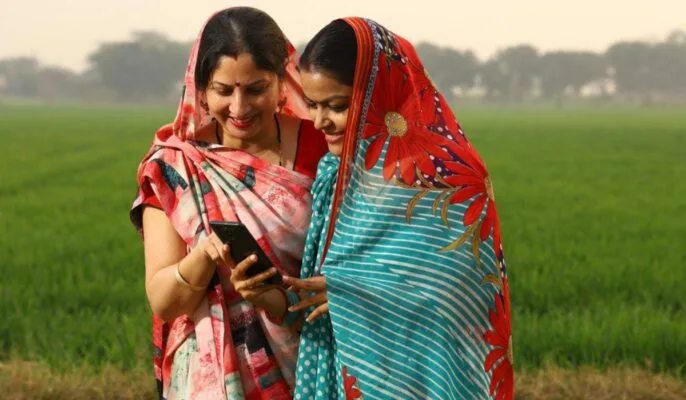Chhattisgarh has placed women’s empowerment at the very core of its development vision, transforming the state’s social fabric in the process. Under the leadership of Chief Minister Shri Vishnu Deo Sai, women are no longer just beneficiaries of government schemes — they have become leaders of change, shaping a new, confident, and self-reliant Chhattisgarh.
Through a series of targeted welfare initiatives led by the Department of Women and Child Development and supported by multiple departments, the state has ensured that empowerment translates into economic independence, social dignity, and decision-making power for women across both urban and remote regions.
Transforming Lives Through Inclusion and Economic Freedom
Under the ‘Mahtari Vandan Yojana’, nearly 70 lakh women have received Rs 12,983 crore through 20 installments, strengthening the financial security of families statewide. The ‘Didi E-Rickshaw Yojana’ has empowered 12,000 women to earn a livelihood with dignity, while ‘Saksham Yojana’ has provided Rs 2 lakh loans at just 3 per cent interest to over 32,000 women entrepreneurs. Similarly, the ‘Mahtari Shakti Loan Scheme’ has extended collateral-free loans to 50,000 women, and over 1.15 lakh beneficiaries have received sewing machines under the ‘Mukhyamantri Silai Machine Sahayata Yojana’.
These initiatives have enabled women to move beyond domestic boundaries, taking on roles as entrepreneurs, community leaders, and economic contributors — marking a profound shift from dependence to empowerment.
Stories of Change: From Struggle to Stability
In Kondagaon, Rato Bai — once a victim of Naxal violence — rebuilt her life with Rs 1.20 lakh from the Pradhan Mantri Awas Yojana (Gramin) and 90 days of MGNREGA wages. Today, she runs a small vegetable business from her newly built home and lives with dignity, supported by schemes like Mahtari Vandan, Ujjwala, and Nal Jal Yojana.
In Dantewada, the Gangadevi Self-Help Group now operates a Tata Magic vehicle transport service, earning nearly Rs 26,000 per month, while in Surguja, Shyama Singh started a centering plate business with a Rs 95,000 loan under the Bihan Scheme. Today, she owns 152 plates and earns Rs 50,000 monthly. In Korba, Manzhnin Bai secured employment at a local health center under the DMF Fund, bringing home Rs 9,000 monthly — a milestone of stability and respect for her family.
Bastar: From Conflict Zone to Cradle of Confidence
The once violence-scarred region of Bastar has rewritten its story. Where the sounds of conflict once echoed, today there are sewing machines, schools, and women’s laughter. Chief Minister Shri Sai’s “Vishwas, Vikas, and Punarvas” (Trust, Development, and Rehabilitation) Policy has turned Bastar into a living symbol of faith and transformation.Chief Minister Shri Vishnu Deo Sai has said, “The reconstruction of Bastar is not merely an exercise in infrastructure building, but a mission to rekindle trust and hope in every household.”
The Government of India, on the state’s request, sanctioned 15,000 additional houses under PMAY-Gramin, including 3,000 in Bastar, Sukma, Bijapur, Dantewada, and Kanker districts. Women like Sodi Hungi of Sukma and Dashri Bai of Kanker built their permanent homes in just three months, symbolizing security and self-respect for over 12,000 beneficiaries. “This scheme is not just about housing,” the Chief Minister said. “It is about rebuilding faith and dignity.”
Today, Bastar’s women are redefining economic empowerment through forest produce, handicrafts, agriculture, and services. Over 2.8 lakh women’s self-help groups (SHGs) operate in Chhattisgarh, 60,000 of them in Bastar, driving community-based livelihoods. Under the Lakhpati Mahila Mission, 2,000 women now earn over Rs 1 lakh annually, while Jashpure and Bastar Cane Craft brands have gained national recognition. Women here are not just self-reliant — they have become job creators and changemakers.

Clean Energy, Health, and Dignity
The Pradhan Mantri Ujjwala Yojana has reached deeper into Chhattisgarh, with 1.59 lakh new LPG connections prioritized for women in Naxal-affected regions. “Clean kitchens, healthy families, and empowered women — this is the essence of Ujjwala,” said the Chief Minister. The shift from smoke-filled kitchens to clean energy has improved health outcomes and quality of life across rural Bastar.
Safety and Sensitivity: A Governance Priority
Women’s safety remains central to the Sai government’s policy framework. Sakhi One-Stop Centers now operate 24×7 across 27 districts, offering immediate support through Helpline 181 and Dial 112. The Nava Bihan Scheme provides legal and counseling aid to domestic violence survivors. Through the Shuchita Scheme, 3 lakh adolescent girls receive hygiene kits, and 2,000 schools now have sanitary napkin vending machines — steps that have strengthened women’s confidence and well-being.
Technology and Enterprise: From ‘Drone Didi’ to ‘Jashpure’
Women in Bastar and Kondagaon are leading a technological revolution. Under the Drone Didi Scheme, 150 women have been trained in drone operations for agricultural use. Meanwhile, over 500 women associated with the ‘Jashpure’ brand now earn up to Rs10,000 per month through handicraft sales. Their products are featured prominently at the Unity Mall, Nava Raipur, taking Bastar’s artistry to national markets.
Where fear once loomed, now shines the light of self-reliance and dignity. The transformation of Bastar stands as a beacon of hope for the entire state — a testament to what inclusive governance, trust, and empowerment can achieve.
“The Chhattisgarh will be one where there is no fear, only faith — where women are not dependent, but empowered,” said Women and Child Development Minister Smt. Laxmi Rajwade.* “Every woman will be strong, every home secure, and every daughter will have an opportunity to rise.”


